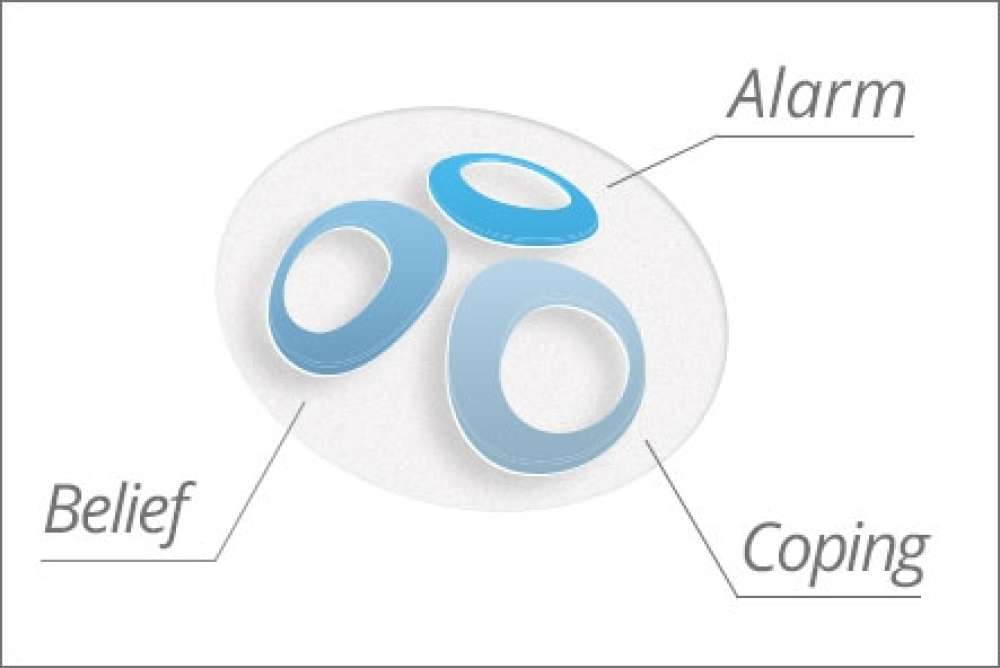Most of us learn the ABCs as one of our first lessons in life. We then use this tool to build knowledge and communicate with the world around us.
Unfortunately, many of us are not given these same tools for everyday living, especially for dealing with and recognizing anxiety, a normal human emotion that protects us from danger. When anxiety strikes we fail to deal positively out of lack of knowledge; we simply have not learned our Anxiety ABCs!
The ABCtracker™, an acronym for Alarm, Belief, Coping, helps users recognize and monitor anxiety triggers. Using the ABCs of Anxiety, you can master your uncomfortable feelings with help from your physician, psychologist, or another healthcare professional.
Mastering Your ABCs
Every master starts as a beginner. Luckily, the ABCs are easy to learn and implement.
A Stands for Alarm
Alarms are an instinctive part of our makeup, alerting us (and our ancestors) to possible dangers, or triggers. Just as a car alarm signals a threat, our bodies respond to imminent danger, whether it is real or simply perceived. Many of us that experience very uncomfortable anxiety have an extra-sensitive alarm, and will quickly respond to situations that actually pose little threat. By recognizing what alarm your body signals, you can begin to understand how your anxiety is triggered.
B Stands for Belief
The body does not stop with alarms; the brain creates beliefs that complement the alarm. When the alarm sounds, you immediately start assessing the situation. Like an owner of a car, in a split-second, you assess the actual risk of the situation that triggered your alarm.
Often, those with pervasive anxiety process this information automatically, forming an incorrect sense of reality, and causing anxiety. Thus, beliefs actually promote anxious thoughts for people with anxiety disorders, making it hard to quiet the alarm and even encourages false alarms. Since people are not always aware of these beliefs, anxiety about them can actually trigger an alarm. By recognizing your beliefs, you can begin to accurately evaluate the validity of them.
C Stands for Coping
After your body processes an alarm, there is often an action accompanying it–a coping strategy. A coping strategy is any mechanism with which we deal with a threatening situation. Everyone has these, as coping results from the instinctive desire to feel safe. Some coping strategies are good, in which case they are called adaptive, while other strategies are dysfunctional, and are called maladaptive.
Many suffering from anxiety develop maladaptive coping strategies that maintain their anxieties or make them worse over time. A helpful way to identify and track your coping strategies is by using the ABCtracker™. It can serve as your first step to developing positive, rather than harmful, coping techniques.
Carla Nasca, Ph.D., is a post-doctoral fellow of the American Foundation for Suicide Prevention in the laboratory of Neuroendocrinology at the Rockefeller University, New York. Dr. Nasca received her B.A. in Molecular Biology and her M.S. in Electrophysiology from the University of Palermo in Italy. She earned her Ph.D. in Neurobiology and Pharmacology from the University Sapienza in Rome, Italy, before moving to The Rockefeller University under the mentorship of Dr. Bruce McEwen.




